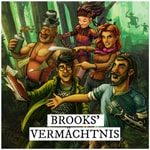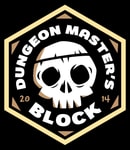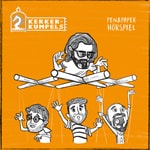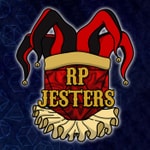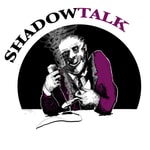How to Be a Better DM: Dungeon Master Tips for the DM Newbie, the Hobbyist and the Forever DM – Détails, épisodes et analyse
Détails du podcast
Informations techniques et générales issues du flux RSS du podcast.
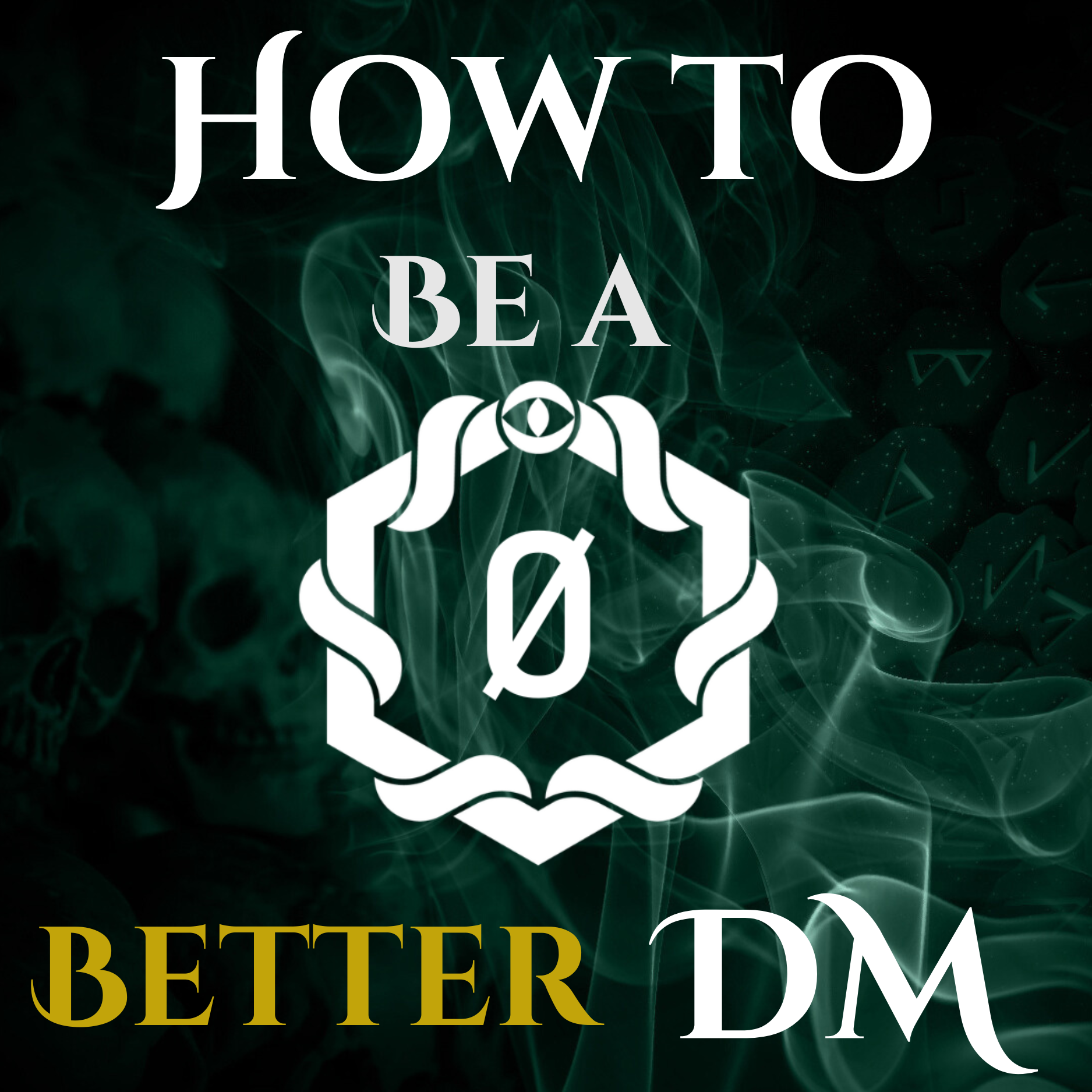
How to Be a Better DM: Dungeon Master Tips for the DM Newbie, the Hobbyist and the Forever DM
Justin Lewis
Fréquence : 1 épisode/7j. Total Éps: 223

Classements récents
Dernières positions dans les classements Apple Podcasts et Spotify.
Apple Podcasts
Aucun classement récent disponible
Spotify
Aucun classement récent disponible
Liens partagés entre épisodes et podcasts
Liens présents dans les descriptions d'épisodes et autres podcasts les utilisant également.
See all- https://tabletopaudio.com/
5132 partages
- https://www.monumentstudios.net/
847 partages
- https://session0studios.com/fantasms
153 partages
Qualité et score du flux RSS
Évaluation technique de la qualité et de la structure du flux RSS.
See allScore global : 43%
Historique des publications
Répartition mensuelle des publications d'épisodes au fil des années.
Are You Starting Your D&D Campaign... With Fun?
jeudi 31 juillet 2025 • Durée 12:37
Tanner shares a minor update about the podcast from his perspective, and talks about how to prioritize fun when starting a campaign. Hint: it's not with a lot of roleplaying like he did with his recent campaign...
Why Your Combat Slogs and How to Fix It
jeudi 24 juillet 2025 • Durée 11:37
Here are today's sponsors:
Worldsmith - Easy D&D Prep - Start a Free 7 Day Trial: https://session0studios.com/worldsmith-podcast
Roll and Play Press - Easier D&D: https://session0studios.com/rollandplay
Studio Fantasms: https://session0studios.com/fantasms
Our Patreon: https://session0studios.com/patreon
Why your combat Slogs
- You haven’t set the epectations with your players
- Because you’re building combats and not encounters
- You haven’t red shirted it - you’re not familiar with the baddies or the mechanics
- You as aren’t taking advantage of all 4 of the Pillars of DMing
- The party doesn’t want to do a combat.
- You don’t know how to make the combat intense
- Phones are at the table
- You make it go on too long
Special thanks to:
Benj Weyland for Graphic Design (https://www.instagram.com/benjweydesign/)
TJ Max, Juka, and TechSenpai for being amazing moderators
Kyle Wilson, Nick Ammann and Professor Nobody for being our patrons.
Mentioned in this episode:
Save time with Roll and Play Press
Save yourself some precious time with Roll and Play Press. Go to https://session0studios.com/rollandplay and use code BETTERDM10 at checkout.
Brought to you by Session 0 Studios
Visit session0studios.com for more information.
Build Cities That Breathe: Mastering “Show, Don’t Tell” in Worldbuilding
jeudi 1 mai 2025 • Durée 35:34
Here are today's sponsors:
Worldsmith - Easy D&D Prep - Start a Free 7 Day Trial: https://session0studios.com/worldsmith-podcast
Roll and Play Press - Easier D&D: https://session0studios.com/rollandplay
Studio Fantasms: https://session0studios.com/fantasms
Our Patreon: https://session0studios.com/patreon
Your world deserves to feel alive. In this episode of How to Be a Better DM, Justin dives deep into the art of “show, don’t tell” — not for your villains this time, but for your cities and settlements. Discover how to make your game world feel like a living, breathing place through cultural cues, architecture, layout, and behavior. You’ll learn actionable techniques to bring immersive environments to life and create settlements that feel like characters in your campaign. Plus, a secret about “show, don’t tell” that no one talks about!
Special thanks to:
Benj Weyland for Graphic Design (https://www.instagram.com/benjweydesign/)
TJ Max, Juka, and TechSenpai for being amazing moderators
Kyle Wilson, Nick Ammann and Professor Nobody for being our patrons.
Mentioned in this episode:
Add the Magic of Sound to Your Gameplay
When you set the scene you need to tap into the five senses. When it comes to sound one of the best ways to do that is with music, sound effects, and ambience. That’s why we’ve teamed up with Monument Studios. Monument Studios provides an easy-to-use Soundboard perfect for Dungeon Mastering. If you want to see this in action, go to fantasy-plus.com and get 10% off of your first month of their Fantasy+ App by using the code BETTERDM at check out. Again that is fantasy-plus.com and BETTERDM at checkout.
Brought to you by Session 0 Studios
Visit session0studios.com for more information.
Start Leveling Up As a DM
Wouldn’t it be nice to gamify your dungeon master abilities? In D&D, characters can reach level 20, so why can’t dungeon masters? We’re happy to tell you that now, you can. We created the Dungeon Master Level-Up Guide. It’s a simple tool to gamify your progression to higher and higher levels of dungeon mastering. It includes Dungeon Master Levels 1 to 20 with associated XP requirements as well as a long list of Dungeon Master activities that will give you XP. Each activity has a Challenge Rating and an XP amount. In order to level up, all you need to do is find out how much XP you have, find out how much you need and pick activities to try. You can get the Dungeon Master Level-Up guide for free by going to session0studios.com/newsletter/, sign up for our newsletter and we’ll email you the Level-Up Guide. Finally, leveling up as a DM can be as fun as leveling up a character.
Give Us a Rating and Review
You obviously have really good taste, you’re listening to How to Be a Better DM after all. We thank you for your support. If you’ve ever gotten anything useful from our show, take a minute to give us a rating and a review. It goes a very long way to making it so How to Be a Better DM can help many more dungeon masters just like you. If you love our content, help others become better dungeon masters too.
Villages Vs Dungeons: When and How to Use Both
jeudi 16 novembre 2023 • Durée 38:18
Tanner Weyland (00:04.783)
Hello and welcome to How to be a Better DM, the official podcast of Monsters.Rent. I'm here with Justin Lewis. Say hi, Justin. Hi, Justin. We are here today to talk about a fun little topic, basically, Dungeons and Villages, when and how to use either. So I mean, this topic, I've always find it interesting, like the composition of a campaign, you know?
Justin (00:13.631)
Hi Justin.
Tanner Weyland (00:33.535)
If you treat it like a like a sandwich, it's like, okay, what you know, it's a nice BLT. Do you put the tomatoes on first? Do you put you know, are you a maniac and you just put a bunch of bacon and just like a leaf of lettuce? You know, what do you do? And how do you kind of balance it? That's kind of what a lot of DMS have to do when it comes to being like, Hey, I want a really cool dungeon. But I also want to have some of the more role playing heavy
Villages and kind of switch it up. Have you ever thought about this kind of balance that you have Justin?
Justin (01:09.986)
I haven't necessarily thought of the balance, but I certainly have fallen into the blunders that we're going to talk about with each of these. And when you do, it's pretty annoying because you kind of kick yourself and be like, dang, that dungeon could have been so fun or that village could have been so fun. I will say, I definitely think one might be a little bit easier because, well, we'll get
I'll reveal all as we talk.
Tanner Weyland (01:42.847)
Exactly. So for the purpose of this discussion, just to give a little roadmap, we'll kind of dive into dungeons and villages or cities, you know, we're saying villages, but we mean any kind of settlement where it's going to be, you know, more NPC centric built. So that's kind of what we're thinking about when we think of village. And it could be any size could be a little, you know, three shacks by the side of the road, or it could be an entire city.
Surrounded by huge walls with giant palaces within it, right? And it just kind of the that's we're bundling that as one experience done on the other side dungeons now It's not always a dungeon per se but it's kind of like a curated Experience where you know, the adventuring party is going into one specific place and exploring, you know
And it's not somewhere they're just traveling through. It's like, no, it's, it's a specific kind of, uh, self-enclosed experience. Uh, so kind of getting into it, let's, let's talk about dungeons and what kind of makes a dungeon special.
Justin (02:50.622)
Yeah. And one other thing I'd like to also add, just sort of a caveat. These are traditional dungeons and villages. You could theoretically take whatever we're talking about, like the aspects, and apply them to the other one, right? For example, by nature, dungeons will be, or seem more railroad-y, right?
Justin (03:19.85)
Choices have been made and now choices are restricted, right? Like once Aragorn follows the path of the dead and he goes into the mountain, the ghosts know he's there, right? He can't just, well, he could just turn around and walk out, but those are his only two choices. Proceed, stay where he is. I guess three choices or go backward. But, but theoretically you could make a village more railroad-y, but we're going to talk in general terms. So that's really the first.
point of a dungeon and kind of what it is once you're in it, it's either stay where you are, which is kind of not really a choice, go forward or go back.
Tanner Weyland (03:58.467)
Exactly and once you're at the dungeon you can kind of expect You know, I think it's gonna be reskinned and you're going to as a DM, you know We talked about this before you want to give a variety of experiences, you know, don't have every combat be the same Have interesting mechanics and include traps here and there and make sure they're not all the same either But that's kind of what you're expecting in the dungeon. You're gonna expect a lot of combats with various creatures
A lot of traps that or just you know obstacles and skill checks that the party is gonna have to deal with and of course loot. I think that that's Another big difference between villages and dungeons is a dungeon So long as you beat the enemy or the challenge or whatever it is The treasure is just sitting there. You don't have to barter. You don't have to pay anything you paid with your time And and your characters, you know
bodies essentially, right? And I think that's kind of you, that's what you expect. And yeah, it might be within a druids ancient enclave or something or it could be in a crypt, you know far below the city, you know, or whatever it is. The skin is going to look different and the types of monsters is going to be specific to the environment, but it's still kind of those elements, you know.
Justin (05:22.494)
Absolutely. Kind of to that point, you know, a traditional way of making dungeons is coming up with either the map first or kind of the end goal first, right? So if they're going into this crypt to destroy a lich, you know, you know that they're going to fight the lich at some point, unless they leave the crypt, right? That's just how it is. And then you sort of fill everything in
challenges to make it more difficult and things like that. So with all that said, compared to a village, a dungeon is a lot more obvious in terms of goals, right? People don't necessarily go into a dungeon and then halfway through be like, wait, like when we get to the end, what are we gonna do? It's like, no, we're gonna kill the baddie and take the loot, right? Like that's the dungeons part of Dungeons and Dragons.
Tanner Weyland (06:19.511)
Exactly. And so I find that dungeons are, they're nice in one way and they're difficult in another. First, they're really nice in the way that it's simple. You know, the players, like I was running a campaign and I had a dungeon.
You know, this was one of those campaigns that kind of sputtered out pretty early on because school happened and all this other stuff, right? But we had gone through it opened up with essentially a dungeon crawl, you know, kind of like a smaller to medium sized one took a few sessions and And then it was like a couple villages in a row and they the players like afterwards. They were like, Oh, I really like that initial dungeon.
And I think that the reason why is because like, Hey, when you're just opening up to adventure, uh, especially if your party isn't amazing at role play, you don't scratch that. Even if they are amazing at role play role playing, I think that you have, there's a lot of difficulty in launching right into role playing. If you haven't had kind of those more like grindy dungeons that you have to go through, right? You kind of need experiences.
in order to really enjoy a village. And I think dungeons are a perfect place for that.
Justin (07:40.778)
I couldn't agree more and I actually think based on what you said, it sparked kind of this thought in my mind that I often talk about galvanizing experiences at the beginning of campaigns or with one shots that force the party to be a party, right? And those galvanizing experiences can be, you know, shared trauma or they could literally be we've all been hired to do the same thing. And
Tanner Weyland (08:08.98)
Yeah.
Justin (08:10.134)
To your point, Tanner, I think doing dungeons at the beginning of a campaign is very important because it does allow the party to sort of form those bonds. And even thinking, you can do dungeons in sort of a very non-dungeony way. So the example I'm thinking of is the Erois campaign of high rollers. They're a group out of the UK, and I've been listening to them
lately and spoiler alert if you haven't listened to it but their campaign starts with session one they're on an airship and they're being attacked right and basically chapter one of this campaign the airship crashes in the lowlands which is a wild and inhospitable place right and there's like five or six survivors fibers including the party
Actually, there might be more because I think there were NPCs. But in a larger sense, that is a dungeon because their options are we have to find civilization or we're going to starve, be attacked by wild elves, things like that, right? And I might be kind of expanding the definition a little bit, but you can do things like that.
And I do think that starting campaigns with a dungeon is a very good idea. Because again, it does give everyone that clear reason of why are we traveling together? Why are we cooperating? Because everyone always likes to pick those characters that are mysterious and don't trust anyone, you know.
Tanner Weyland (09:53.531)
Yeah. And, and, you know, I think for all the strengths of a dungeon, because like you mentioned, it's, it's right in the name. As much as people love dragons, dungeons comes first. Uh, and, but I think that the issue is that sometimes they can be fatiguing, especially for a DM, but also for players, right? Where it's like, if, if it's big enough, well, I mean, caveat, if your players come in being like, Hey, I want to do a huge dungeon, you know.
Uh, just like multi-level and that's basically the entire campaign's one big dungeon that that's, that's the exception. If you're just including a dungeon as part of the campaign, if you do too long of a dungeon, then it's just, it's a lot of combats. It's a lot of the party being essentially on edge the entire time, right. Being like, Oh, you know, stealth into the next room for like 10 sessions in a row. You know,
And it just becomes so fatiguing. And so it's like, Hey, you know, pick your battles, uh, specifically by, you know, making it so that not every dungeon is super long, uh, occasionally, I think it's totally worth it to do a longer dungeon, especially if you've got really big consequences and if you build it up, then the players are like, Oh, okay. Prepare well. Cause you know, there's no coming back or not for a while, at least then, you know, a longer campaign can be fine.
It'll still be fatiguing, but it's kind of like the hard days work type of fatigue. Otherwise you don't want to do that consistently in my opinion.
Justin (11:24.138)
Yeah. I would actually add two examples of my current campaign. Um, so I had my group in the underdark and my thought process was, well, in the underdark, you don't really, you guys don't know where you're going. So you're, you're literally wandering around. Uh, and I was making the map as I went, basically rolling on random tables to see what rooms were, were next. And they weren't keeping a map, right?
And suffice it to say it went on far too long. And I did that because I was like, yeah, I want them to feel the frustration of being in the underdark, right? Being lost. But I think it failed because you don't want your players to feel that you want the characters to feel that. So exactly right, Tanner. You don't want to do too big of a dungeon, but you said something very important. If you prepare them for the scope of it and the scale.
I think that's the secret sauce.
Tanner Weyland (12:26.203)
Exactly, you know, because any type of here's the great thing. We talk about Dungeons and Dragons being about storytelling and it's absolutely right and stories come in all kinds of shapes and sizes, but as a general rule, you know, if you're not really building a dungeon up, then maybe make it small to medium length, you know, and then for longer ones, you want to give that kind of a gravitas to it beforehand.
Um, but, but enough about dungeons, let's talk about villages and cities. Um, I think it's no surprise that first and foremost, they're just much more role playing focused, right? You don't go into a dungeon expecting to talk with every mimic who's pretending to be a chest, right? You go into a dungeon to just, you know, hack and slash and find stuff. Villages. It's like, no, that's, that's the key difference is like people. NPCs and you're going to be talking a lot.
and how you kind of utilize those role-playing opportunities can be the difference between a very boring city or village and a very exciting one, you know?
Justin (13:33.482)
Yeah, absolutely. Kind of what I was saying before, you know, Aragorn goes into the path of the dead. He's in the dungeon per se. It's not exactly the same thing, but his choices are stay put, move forward or go backwards in a, in a city, a village, a settlement. Your decisions are, uh, go forward, stay put, go backward, go right, go left, go up, go down, go inside, go outside that, you know, there's a lot more choices. And.
To this point, as I said with a dungeon, the game mechanics were a lot more obvious with a dungeon, right? There are traps that cause things. In a settlement, you have more choice, right? And because of that, you're...
The game mechanics aren't as obvious. You might gain favor in the eyes of a baron because you did something for them, which isn't a direct game mechanic, but it's something that your dungeon master or you might be factoring in because you slaughtered this orc that was holding this person hostage or something like that.
It's sort of a subtle game mechanic that's not so obvious, but it still has impact. That's another aspect of villages and cities that is very different than traditional dungeons.
Tanner Weyland (15:04.323)
Exactly. And I think, I think if you look at it the right way, then Villages provides you a lot more creativity, especially where, you know, like you were saying, the mechanics aren't obvious. So make your own mechanics, and specifically, make it in a way that provides both direction and development for characters. Because I think that's where Villages really shine, where it's like
if you look at a dungeon in terms of like, oh, that's a place where they get kind of galvanized together as a party, the place where they grow as individuals is in a city, you know, in a village, that's where the characters can be like, hey, I'm gonna go pray at the nearest, you know, temple of the God that they worship, right? Or they're going to go look for a specific type of equipment that they're looking for. Or maybe they're, they're like, hey, I want to go find
<
A D&D Tavern: Setting Up the Iconic Campaign Element
jeudi 9 novembre 2023 • Durée 32:26
Welcome back to How to Be a Better DM, the Official Podcast of Monsters.Rent. If you are a podcast listener, I am currently waving at you because I am recording myself on video to add to our Youtube Channel, How to Be a Better DM.
Today’s show is going to talk about one of the most common D&D tropes out there. It’s the place where all great adventures start, and usually where most adventurers end their day. It’s the place that I like to imagine myself in when I record these shows, and you and I have sat down at a table to swap stories.
But before we get to that, I just want to take a moment to say thank you. From the bottom of my heart, thank you. I was chatting my my boss at my day Job, and he asked about the podcast and Monsters.Rent. We got to chatting and he looked us up on Spotify and Apple. Because of you, we have over 50 ratings on Spotify and over 15 on Apple Podcasts. That’s so awesome. Just seeing that made my day. I can honestly say that from. Myself and Tanner, if we didn’t have you listening and interacting, this would be much more lonely. So thank you so much for listening and adventuring with us :)
A couple weeks ago, I was running the free Halloween one shot. Spoiler alert, but ther is a tavern in the one shot. If I can be Frank with you, during th one shot, the party went to the Tavern and honestly I did not have it as fleshed out as I wanted. Improv is great, and it’s a very important skill to have, but have a plan that goes well is usually better. I had to improvise. In my opinion, it wasn’t as cool as it should have been.
So it got me thinking. Basically every D&D campaign has taverns in them. They are a mainstay of th hobby. So I decided to do an entire podcast episode on taverns, specifically on how to use them and how to prepare them and how to populate them. We’ll talk about some tips to make it easy for you to run them in your games.
Let’s first talk about the importance of taverns. First f all, you can choose not to hve them in your game, which is completely fine.
However, as I’ve already said, a tavern is a very classic trope of D&D games. It can function as the base of operations for your party. It can be sort of that “safe space” that your band finds all along their journeys.
It can be much more than that however. For one thing, it can be a place of great player-to-player roleplaying, which in my opinion is some of the most important roleplaying there is.
Combat can be so quick paced and hectic, that sometimes it is nice to metaphorically kick back and have a nice drink with friends.
Sometimes you also need your bad guy’s to “Kick down the door” as Brandon Sanderson and Friends say on their podcast, Writing Excuses. What better place than a tavern.
I think the most important reason to feature a tavern in your game is because our characters are adventurers. That, by definition, means that they rarely return home. People still want to feel a sense of home, or at least a sense of coziness. That’s exactly what taverns were created to do. Throughout history, ever since the fall of the Roman Empire, taverns became a place of refuge for people on the road. So why not sit back and enjoy the feel of a homely tavern with your friends.
Obviously, if you want to feature a tavern, then it would be good to know the most basic elements of a tavern. As I like to say though, once you know the rules, you can learn how to break them in fun and interesting ways. So let me tell you what you will most likely find in a tavern, and then you can change things up in very new and interesting ways, however you wish.
Since a tavern is a type of bar, you obviously need a barkeep. The most basic requirements of a barkeep are that they serve drinks. In more common tavern settings, the barkeep is behind the bar. Often they know a lot about the town or the setting, but sometimes they don’t. In most cases te barkeep is just as iconic as the tavern. That means that the tavern is a great time and place to really make a unique character that probably won’t become embroiled with the party as a pocket NPC.
Next, you have the patrons. While the party may or may not ask about the barkeep, they will most definitely ask about the patrons. That’s because the patrons pose possible threats, opportunities and surprises for the party. Here too you can create characters that will delight and entertain your party, but don’t be surprised yourself when the party adopts one of them or tries to kill all of them.
Taverns are food service establishments, and more importantly, drink service establishments. That means that you have to have food or at the very least, drinks. More importantly, you’ll need to know how much the food and drink costs because that will be a very real cost to your players.
If the tavern is big enough you may need to add in some servers. These are like waiters and waitresses in the real world. It’s a pretty simple thing to add in and these characters can even be unique and interesting or they can be simple and boring. It’s all up to you. You see servers aren’t necessary to a tavern like a barkeep or food and drink are.
Another interesting, yet unnecessary, piece to add into your tavern is the Bulletin. This is simply a board with various notices pinned upon it. Most of the time, the notices are for jobs that need doing. This can function as a very important game element, drawing your players from one plot hook or adventure hook to another. Simply add this to the corner of any tavern and watch your players dive into each adventure.
The last thing that you may or may not want to add to your tavern is “The Interest”. This is a blanket term for anything that makes the tavern experience memorable. First, if you don’t want or care that the characters or players remember this particular tavern, then don’t put an Interest in the tavern. An interest is anything that would make someone remember this tavern. One way you can think about this is, “Why would people come to this establishment over any other tavern?” Or you can simply think, “How can I make this tavern experience more fun for my players?” It’s similar to how you find some sort of quirk to add to NPC’s to try to make them more memorable too. To help you understand what I mean, let’s do a couple of examples.
In favor room in water deep there is a tavern called the yawning portal it’s a very famous tavern and there’s actually a source book named after it. The yawning portal actually has a well if I remember right in front of it. The well supposedly leads to the Waterdeep underground dungeons that’s one example of a interest it’s easy to remember and it makes the tavern somewhat famous more or less. Another example comes from the Halloween one shot that I hosted a couple weeks ago. I had a tavern in my one shot that is called Caliagri’s cavern. This tavern is actually in a sinkhole. When you enter the tavern building which resembles just a small shack, you descend into the sinkhole and that’s where you find the tavern and the end as well as a bathhouse using the natural spring that caused the sinkhole. That’s one example of an interest for a tavern.
Now that we’ve talked about basic elements of a tavern let’s talk about how to add one into your game. First we need to think about how often tavern show up and where. I think a good rule of thumb is for every 25 buildings in a settlement a small tavern should be present. For every 50 buildings in a settlement a large tavern should be present. When you start to add taverns to cities you don’t need to do this hard and fast rule because the city will be big enough that it will have many taverns. at that point what you need to do is sync up a list of taverns that would be most commonly recommended or most prominently found. It would also be a good idea to create a list of terrible taverns or bad taverns, because shady dealings of the underbelly of society happen in these bad taverns. you can also add taverns as way points or stopping points on large roads. They almost act as hostiles but there’s no reason you shouldn’t be able to add in a tavern there as well. I find that having a tavern in mind when a party enters a town is very important because more often than not they will seek out a N or a tavern for room and lodging.
As far as where the tavern should be placed, there are no rules. You could have a tavern out in the middle of nowhere. That said, With towns and cities, the center of the city will likely be home to older taverns and the periphery will probably have newer ones.
Now, let’s get to building your tavern.
For the most part, every tavern will need a name. No matter what though, every tavern will need something that it’s called by other people. Sometimes those two things are different. If you decide to have a tavern who’s owner never named it, everyone in the town might call it Some Guy’s Tavern, which would then be its defacto name, but not it’s actual name.
Naming taverns is quite easy, because you can do whatever you want. That said, here are some tips to help you do it even faster.
- Focus on the interest. If you’ve already picked the interest for the tavern, then you can just go off of that. Going back to my two examples earlier, both the Yawning Portal and Caliagri’s Cavern draw their names from their interest.
- Do it Quick without hesitation. If you are coming up with a tavern on the fly, then your players will sense your hesitation. So name the tavern, stick with the name and defend it. Don’t let your players bully you into thinking it’s a dumb name, even if it is.
- Verb + Noun. If you are having trouble making up a tavern name, you can take a cue from the Dungeon Master’s Guide and do the Verb/Adjective + Noun formula that might have gotten its start with J.R.R. Tolkein (i.e. the Prancing Pony). You simply pick a noun and then attach an adjective or an active ing verb to the front of it and you got a nice tavern name. Let’s do some real quick. The Red Blade Tavern, maybe something for pirates. The Belching Barrel. The Shifting Mercury. See, it’s pretty easy.
- Name’s Noun. If that doesn’t fit what you are looking for, you can opt for the Name’s Noun formula. You pick a name, make it possessive and then pick a noun. For example, Cagliari’s Cavern, Arthur’s Round Table (that sounds like it should be a themed restaurant), Vergoin’s Vestibule. Lots and lots of names.
With these tips, naming taverns should be a piece of cake and your players will always think you are the most prepared DM in the universe.
After naming the tavern, describing it is the next step.
First, don’t forget to do some work on the outside of the tavern. This is an easy trap for people to fall into, in fact, I struggle with this myself, but the tavern experience begins outside the tavern. Are there drunkards sleeping in the ditch off to the side of the tavern? Does the tavern have well-paid bodyguards? Is the plaster peeling or is the tavern made of rich mahogany wood? All of these facts tell your party about the establishment before they even set foot in the door.
Try and hint at what might be within the tavern when you describe the exterior. It’s important to do this most of the time so that when do decide to break the rules and make the inside the opposite or contrary to the exterior, you will catch your party off guard. That’s how you get the rewarding reveals.
Moving inside, don’t forget to describe the scene from the five senses. Tell your players what they smell, what makes their mouth water, what they hear, the temperature of the room.
After you get that taken care of, it’s a good idea to explain the layout of the tavern. Obviously every tavern will be different so to help you out, let’s describe 3 generic tavern layouts that you can use in your games at the drop of the hat.
First, the Cantina. In this Tavern, the room can be any size but the bar itself juts out into the middle of the room with the barkeep being able to service people on both sides, or there being 2 barkeeps. The tables are arrayed around the bar in a circular pattern.
Second, the classic Bar. In this tavern, one wall is dominated by the bar and the tables are arrayed throughout the room.
Lastly, you have the L Shaped Bar. The room itself is l shaped with the bar following the shape of the room. With these three tavern layouts, you can easily describe the shape of the tavern if you are pushed to create a tavern on the fly.
Now, let’s talk about the most important part of the tavern, roleplaying.
The first thing you need to know is that you don’t need to be ready to roleplay everyone in the tavern, but you do need to be ready to improv roleplay everyone in the tavern. What I mean by that is that you simply need to prepare a few select characters in the tavern. Everything else is just gravy.
Being a dungeon master is a lot like being a fisherman. You prepare the bait, but the fish decides whether they take it. So, being a good fisherman is knowing how to get the fish to take the bait. So with this metaphor, you need to prepare what you hope your characters will interact with. So spend much more time working on things that you actually want to play through. I make this mistake all the time, adding in interesting details about peripheral NPCs and then I get a,l surprised when the characters interact with that peripheral NPC instead of engaging with the important part of the story that I put forth. Obviously that’s where improvisation comes from, but it’s a better experience if your players think you are improvising but really you are going off of stuff you have prepared.
I ramble
So to roleplay a tavern well, you simply take the basic parts we’ve already discussed and you flesh each out a bit more.
We’ve talked about creating NPCs often enough on this show so I won’t talk about actual making the barkeep or the maids or the patrons more than just that you need to answer the
Post-Session Reflection for DMs: Journaling Towards Success
jeudi 2 novembre 2023 • Durée 14:09
Welcome to How to Be a Better DM, the official podcast of Monsters.Rent.
Today, we have some self-reflection to do... Or rather, all DMs should be reflecting on how a session went right afterwards in order to maximize their improvement.
Got your journal out? Well, that's the first step!
Mentioned in this episode:
Signup for Our Email Newsletter
Do you love the show but can't always listen to it? Do you prefer written content? Go to session0studios.com/newsletter/ and sign up to get weekly tips and tricks sent to your inbox so you can become the greatest DM the world has ever seen.
Brought to you by Session 0 Studios
Visit session0studios.com for more information.
Get The Swampberry Moonshine Jamboree For Free
Take a trip down to the bayou in The Swampberry Moonshine Jamboree. We teamed up with Studio Fantasms to bring you a raucous one-shot adventure full of gatorfolk, catfishing, and a whole lotta moonshine. We wrote the adventure, they designed the minis—it’s a sweet little bundle, and it’s totally free for the month of May. Just head to https://session0studios.com/fantasms and sign up to grab it. Don’t wait—May’s free, and once it’s gone, it’s gone.
Should You Invite Guests to Play In Your D&D Campaign?
jeudi 26 octobre 2023 • Durée 22:20
Today we talk about inviting guests to join you in your D&D campaign.
Here are some of the topics we talked about :
Should you have guest players?
Reasons For
The guest has never played D&D. Allowing them to play with an established group would give them a better experience than just having them find a random group who may or may not have played before.
Bringing in a guest might allow you to portray an important NPC in the story without having to roleplay them yourself
Reasons Against
Adding in a guest might disrupt the flow of the game and the group. They may not mesh because they probably don’t understand the inside jokes and comradery of the group
Why should you try having a guest player?
How Should You Do It?
How Should You Not Do it?
Mentioned in this episode:
Add the Magic of Sound to Your Gameplay
When you set the scene you need to tap into the five senses. When it comes to sound one of the best ways to do that is with music, sound effects, and ambience. That’s why we’ve teamed up with Monument Studios. Monument Studios provides an easy-to-use Soundboard perfect for Dungeon Mastering. If you want to see this in action, go to fantasy-plus.com and get 10% off of your first month of their Fantasy+ App by using the code BETTERDM at check out. Again that is fantasy-plus.com and BETTERDM at checkout.
Get The Swampberry Moonshine Jamboree For Free
Take a trip down to the bayou in The Swampberry Moonshine Jamboree. We teamed up with Studio Fantasms to bring you a raucous one-shot adventure full of gatorfolk, catfishing, and a whole lotta moonshine. We wrote the adventure, they designed the minis—it’s a sweet little bundle, and it’s totally free for the month of May. Just head to https://session0studios.com/fantasms and sign up to grab it. Don’t wait—May’s free, and once it’s gone, it’s gone.
Brought to you by Session 0 Studios
Visit session0studios.com for more information.
DND, Faith, Religion and Gods: How to Do It Right
jeudi 19 octobre 2023 • Durée 37:56
Welcome to How to Be a Better DM, the official podcast of Monsters.Rent. I’m your host today, Justin Lewis, and together we are going to talk about how to improve your gameplay both from a mechanical and storytelling point of view.
Today, I’m excited to talk about an aspect of the game that for me holds a lot of interest and for a lot of people can be a rich source of story elements and intrigue. At the same time, for other people it can be completely boring, and possibly offputting. I’m talking about Gods, faith and religion.
Before I get into the rest of today’s episode, I want to take a moment to talk about The Guild. For those of you who don’t know, the Guild is our unique membership for dungeon masters. It allows you to connect with other DMs like yourself and get access to a library of video courses and downloadable resources for your gameplay. Oh and it’s 100% free. I hope you’ll join us there, so go to monsters.rent/get-started and scroll all the way to the bottom.
Table ComfortNow, the very first thing you need to do is assess your table’s comfort level with the topics of God, Religion, and Faith. In some cases, you’ll have a natural understanding. In my case, a few members of my table are also members of my faith, so I knew that they would be ok having some of those topics in the game.
In other circumstances, it would be a smart idea to ask if the table is alright with those themes and topics being in the game. In most D&D settings, having a mystical god or gods is all part and parcel to the game, but depending on how your players feel about it, then you might want to tread lightly. Some games might be focused on the path of divinity, others might have gods as simply an afterthought. No matter what you do, you want to avoid these two mistakes.
Avoid Pushing ReligionSaying this as a religious person, you absolutely do not want to turn your D&D sessions into sermons. I know you’re probably thinking that that would kind of be funny, and it might, but honestly, you don’t want to force players into roleplaying something they don’t want to roleplay. A person’s faith is a very personal thing, and if someone is not a person of faith, religion or Diety, then they don’t have to be even in a make-believe world.
On the other side of the coin, you definitely don’t want to make fun of religion and make it appear as something that is farcical. Even though your players may be ok with it, it’s best not to form bad habits because there will come a time when you sit down to play at a table with someone who cares, and then you’ll make the slip up of a lifetime. Best to avoid those big mistakes. Extend the same consideration and courtesy you would to any other sort of way of life.
Now, with your players on board for having Gods be an active part of the game, let’s talk about some other questions you need to ask. These questions apply to both homebrew settings and settings that are prewritten, but the questions will apply a little differently to each.
The first question that you need to ask is how involved will Godhood (god or gods) be in your setting or game. This is important because if they won’t even matter, then you likely don’t need anything else in this episode. I’d still recommend listening to the end because you never know when a player might ask you a question or make a choice that will make the gods much more involved.
In different settings, Gods behave differently. In some games, Gods are active members of the universe, granting divine boons with ease. In other settings, Gods are basically hidden from sight, deigning not to intervene with their followers’ lives.
It’s important that you know which type of setting yours is and how the Gods will interact with players and NPCs alike. Really, the interaction of Gods falls on a spectrum with an asterisk. The spectrum is set up with very involved on the left and not involved at all on the right. The asterisk stipulates that the spectrum can describe the entire setting and the involvement of each individual deity. An entire pantheon can be relatively involved with one or two being basically inactive. Or you could have the inverse where the pantheon is basically a non-entity with one or two who are trying to control the universe. Both instances can make for a very fun campaign.
Unless you have players who make clerics or paladins you don’t necessarily need to have the gods or god interact with your players. In fact, you could make a case for why your god doesn’t interact with the devoted paladin or cleric.
But if you do have gods who interact with players you need to know how involved the gods will be with those players. Will the god in question have multiple role playing scenes face to face with the player? If they did would that be normal for the player or the god? Each of these choices has impacts on the story and you should definitely help your players realize when something special is happening.
Will your players know that it is a god they are interacting with? Maybe your deity has decided to be a beneficial patron of the player but will not show themselves. The players then may draw the conclusion that a wealthy land owner has decided to show them favor.
Sometimes you’ll need to realize that if one God is involved, like very involved, then that might push another deity who is at odds with the one helping the party to get involved. You might put your party in between a turf war of two gods. That could make for a pretty epic campaign.
I would say that you need to set some pretty simple yet clear guidelines for yourself on what the party members can expect from a deity. Do they hear whisperings of advice when the player has no idea what to do? Or does God just show up in a brief Vision and explain that a certain task needs doing?
When you have established your “rules” for how Gods interact with players, then you get to occasionally break them, which becomes a very fun Plot device.
This question is more about the setting than the individual player interactions. Is your pantheon filled with numerous gods, only a handful or just one? This question naturally morphs into other considerations. For example, if your pantheon is filled with multiple gods, then the likelihood of all of the Gods having omniscience goes way down. Having 7 beings who all know everything that is happened yet have cross purposes becomes very difficult to handle very fast. Or, the gods just know everything to the point that the don’t really do anything against each other so then the Gods become more observers than actors. I suppose you probably could figure out a way to make it work, but I haven’t.
If you have one God, it’s much more possible for them to have omniscience, but having them favor certain things becomes more difficult. Either the God is the God of everything or for some reason your God just very partial to only a few things, like they’ve decided to be the God of the harvest, but there are no other gods. That could make for a very silly setting or one that just doesn’t make sense.
With this question also comes the question of whether or not the characters and the world at large even know about all of the Gods. It might make a fascinating campaign if there are a slew of gods that hide from the world.
Now, that you’ve come up with the number of gods that will populate your pantheon, you need to decide whether or not they will be good, neutral, or evil. You also need to decide whether the gods will actively fight against each other or will they be friendly towards each other and, even if they are somewhat antagonistic towards one another, they’ll still be somewhat friendly?
Let’s take an example. Let’s make up two gods. We have Ordos and Sruptos, the good god of order and the evil god of chaos respectively.
In your setting, will Ordos and Sruptos be battling each other, to the death if possible? Or will they, by nature of the invincibility of Gods, be forced to be cordial and respectful to each other, using mortals as pieces on a game board rather than soldier in a battle? All of these questions add to the narrative and help you know how to bend and twist the story.
If you have multiple gods, then it is common to have gods who have all sorts of alignments.
If you have only one god, then alignment isn’t really useful, unless it is pivotal to the story. For example, if you only have one god, but that God just so happens to be evil, that could be the genesis for a very interesting campaign setting. I’d imagine that the God has some sort of rules that prohibit them from taken certain actions, which allows the characters to still choose to be Good if they want, or the entire cosmos is evil and everything just works within those parameters.
As you can see, how God’s act and react shapes in very large ways how your story goes.
Now, I just brought up a point that forces us to think about these next two questions: 1. Can Gods be killed? And 2. Can anyone become a god?
In the previous example of Ordos and Sruptos, I explained that they might have to treat each other like game partners because they can’t kill each other. The fact that both are invincible is very important because it explains why they would want to be nice to each other. They are essentially stuck with each other forever.
So in your campaign, you need to decide early on if Gods can be killed. It may be that that turns out to be the secret quest of one of your players. They want revenge on one of the Gods because they let their wife die or something like that. That can become a very epic story very quickly.
You could also take the opposite approach and show that the God’s cannot be killed. In the same story of a player who wants revenge, the entire story could be about the God trying to gain back the trust of the vengeful player, while also explaining that they can’t be killed. The DM could even throw in some touching moments where the God explains that he’s tried to kill himself but it didn’t work.
If gods can be killed then you need to start figuring out what does and doesn’t kill a god. As I’ve already mentioned, that means that you also need to figure out why any other gods haven’t already tried killing their rivals. In most cases, God Killing will be a very difficult task. In many ancient mythologies, Gods were “killed” but if their body parts were reunited, the God was essentially brought back to life. In other fantasy settings, like Brandon Sanderson’s Cosmere, when a “god” dies, their power essentially either rests on the planet the God was bound to or the power seeks out another “host” transcending them to godhood. How will it be in your setting? Can anyone kill a god? What happens when the God dies? If they were the God of sunrises, does the sun stop rising? All of these are important
The next question that needs to be addressed is whether or not becoming a god is possible. This too could potentially become a personal quest of one of your party members, so you need to know whether or not it is possible. This question can be decided in the moment, though as you are roleplaying.
If the answer is yes to the question of can anyone become a god, then you probably need to answer the follow up question of “Why aren’t there more Gods?” The natural answer will likely be because becoming a God is very difficult. A more interesting answer might be that becoming a God is not even actually that desirable for reasons that are unknown to most people.
The point I’m trying to make with these two questions of Killing or Becoming Gods is that diety can be very powerful plot points and since they can be very powerful, you must treat them with care and attention. Your player’s will wonder why Gods can be killed at the drop of a hat. You better have a good well thought out reason. True, you can probably come up with something cool in the moment, but it needs to make sense because in most cases Gods have their hands in a lot of pots, so to speak.
Now that we’ve talked at length about using Gods in your campaign setting, let’s start diving even deeping into how to move your story along.
We all know that great stories in D&D start with plot hooks, or rather simple introductory elements that entice player’s to explore a particular story line more to eventually find a much large and more fulfilling story.
A simple example of a plot hook is, “While digging through this dungeon you find a strange bow made out of black wood in the hands of a corpse that dried up decades ago. You pick up the bow and in your mind you hear, “Hello!” The player does not know practically anything about the bow except that it said hello which is interesting and curious.
When it comes to faith, there are limitless plot hooks to use. That’s probably the most common way to use Faith or Religion or God as a plot device. It can help start the story.
Another interesting tidbit about plot devices is that they are just plot hooks, except usually you have knowledge that connects past experiences to the plot hook.
An example of this would be, “While traveling on this long road to do your Diety’s bidding, you turn a corner and see your God bartering with a local merchant. He does not notice you. You approach him and confront him, only to have him completely vanish. Before he did though, you put your hand on his arm and were not shocked with his power. He felt warm, and mortal…”
This plot device has the same elements as a plot hook, in that it makes the consumer of the story curious and incentivized to finish the story, but we have some knowledge of the god before the exchange.
In my estimation, there are only two ways to really use plot devices and certainly only 2 when it comes to faith. The Push and The Pull
A plot device is designed to move the story along. Since our players are the main motivators of the story, a plot device in D&D is designed to get the players taking action in any particular direction. A good DM th
Andrew Ashby: World Record Dungeons and Dragons Game, We Geek Together the Tabletop Tavern and the Patterns of Successful DMs
jeudi 12 octobre 2023 • Durée 39:41
Welcome back to How to Be a Better DM, the official podcast of Monsters.Rent
We have an awesome podcast today for you. We were able to sit down and chat with Andrew Ashby, owner of We Geek Together. We Geek Together is a store focused on Tabletop Gaming but themed after a tavern, and it's located in Provo Utah. Last April, Andrew hosted the Dead Wars, which was a 1000+ Player D&D game that broke a world record. Today we talk a lot about Dead Wars but also about some important tips for DMs of all experience levels. Below are a list of questions we had prepared for Andrew, but the conversation was so much better than these questions.
Andrew also started his own podcast as well which you can find on his website.
Show Notes:
Warm up question: what have you been geeking out about recently?
Section 1: Dead Wars
Summary- Talking about orchestrating Dead Wars
Questions:
Where did the idea first begin for you to beat the world record?
What was the session prep like?
What were the biggest hurdles you had to overcome and how did you get past them?
How was finding players and DMs for the event similar to finding players for a normal game? Different?
Would you recommend this style of group D&D play to DMs wanting to get a big group together?
What tips would you give to any DM who wants to put on a multiple group session or event?
Section 2: Running the Tavern
Summary - Talking about setting up a D&D business that is very welcoming of DMs
Questions:
What made you want to start this kind of business?
How did you test and prove your business idea?
What specific goals or values are the focus of WGT?
What would you say is the best part of WGT for DMs, specifically?
How did you figure out what to put in the tavern?
Section 3: Patterns of the Most Successful DMs
Summary - talking about what sets the best DM’s apart
Questions:
What positive patterns do you see in the groups that play the most often?
How do your regular DMs do effective session prep? And how do they create immersion?
What sorts of tools or equipment do your regular DMs use?
What are the most noticeable differences between an engaged table of players, and one that is stalled?
Mentioned in this episode:
Brought to you by Session 0 Studios
Visit session0studios.com for more information.
Get The Swampberry Moonshine Jamboree For Free
Take a trip down to the bayou in The Swampberry Moonshine Jamboree. We teamed up with Studio Fantasms to bring you a raucous one-shot adventure full of gatorfolk, catfishing, and a whole lotta moonshine. We wrote the adventure, they designed the minis—it’s a sweet little bundle, and it’s totally free for the month of May. Just head to https://session0studios.com/fantasms and sign up to grab it. Don’t wait—May’s free, and once it’s gone, it’s gone.
Save time with Roll and Play Press
Save yourself some precious time with Roll and Play Press. Go to https://session0studios.com/rollandplay and use code BETTERDM10 at checkout.
Are Random Encounters in D&D Good Storytelling, or Bad?
jeudi 5 octobre 2023 • Durée 21:37
Tanner hosts this episode of the How to Be a Better DM Podcast, the official podcast of Monsters.Rent. He discusses how random encounters don't need to be simple filler, or poor storytelling tools for the overburdened DM. Rather, with some important tips, you can create a tool that saves you time but also adds fun in specific ways. Just remember to add pizzaz!
Mentioned in this episode:
Add the Magic of Sound to Your Gameplay
When you set the scene you need to tap into the five senses. When it comes to sound one of the best ways to do that is with music, sound effects, and ambience. That’s why we’ve teamed up with Monument Studios. Monument Studios provides an easy-to-use Soundboard perfect for Dungeon Mastering. If you want to see this in action, go to fantasy-plus.com and get 10% off of your first month of their Fantasy+ App by using the code BETTERDM at check out. Again that is fantasy-plus.com and BETTERDM at checkout.
Brought to you by Session 0 Studios
Visit session0studios.com for more information.
Get The Swampberry Moonshine Jamboree For Free
Take a trip down to the bayou in The Swampberry Moonshine Jamboree. We teamed up with Studio Fantasms to bring you a raucous one-shot adventure full of gatorfolk, catfishing, and a whole lotta moonshine. We wrote the adventure, they designed the minis—it’s a sweet little bundle, and it’s totally free for the month of May. Just head to https://session0studios.com/fantasms and sign up to grab it. Don’t wait—May’s free, and once it’s gone, it’s gone.
